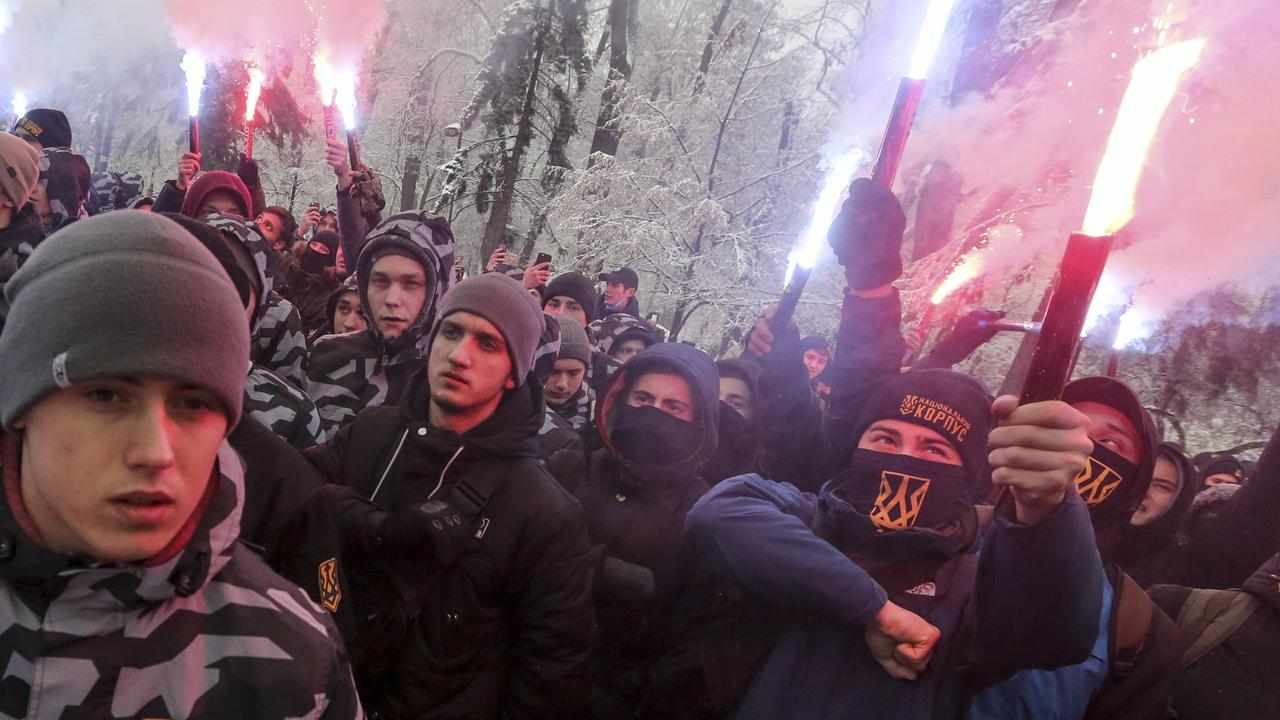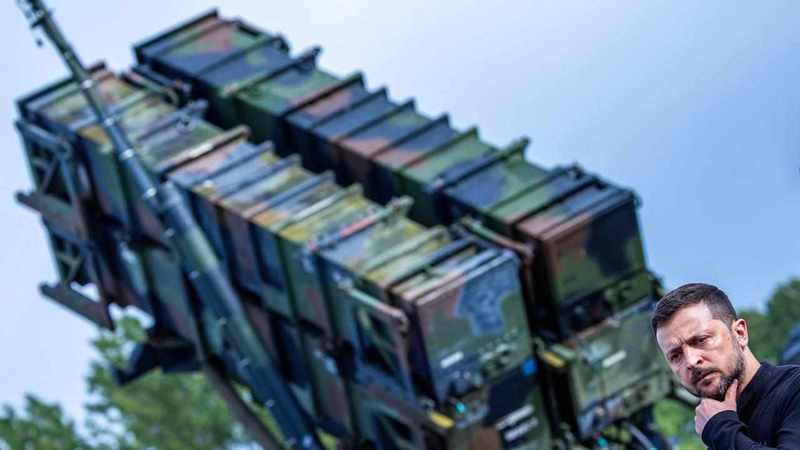Ukraine and its allies have drummed up support to protect Ukrainian cities from Russian missiles at a conference in Berlin and urged international businesses to put their faith, and billions of dollars, into post-war reconstruction.
Ukraine hopes the recovery conference will cement its credentials as a future member of the European Union worthy of huge injections of reconstruction financing - even as Russian forces continue to make slow advances in Ukraine's east.
It comes as Russia launched a missile and drone attack on Kyiv early on Wednesday with preliminary information showing no injuries or damage in the capital, Ukrainian military said.
Ukraine's air defence systems destroyed all air weapons on their approach to the city, Serhiy Popko, head of Kyiv's military administration said on the Telegram messaging app.
He added that according to preliminary information, Russia used a combination of cruise and ballistic missiles as well as drones in its attack. The size of the attack was not immediately clear.
Reuters could not independently verify what weapons were used, but Reuters witnesses said that several blasts that sounded like air defence systems at work were heard in and around Kyiv.
Switzerland hosts a summit this weekend to seek a path to peace in Ukraine but it has been shunned by China and dismissed as a waste of time by Russia, which was not invited.
Speaking alongside German Chancellor Olaf Scholz, Ukrainian President Volodymyr Zelenskiy said Russia had already destroyed enough energy infrastructure to power the cities of Berlin and Munich combined.
He was hoping to secure pledges of billions of euros for defence and agreements on building a new and more modern energy system.
"Ukraine is suffering from the most destructive form of the Russian view of energy as a weapon," Zelenskiy said.
Citing World Bank estimates that Ukraine could need $US500 billion ($A757 billion) over a decade, Scholz said companies had to be offered a business case for investing, and talked up Ukraine's potential in sectors including renewables, IT and pharmaceuticals.
He also said Germany was sending more air defence systems to bolster Ukraine's defences against a barrage of Russian attacks on cities and critical infrastructure, more than two years after Russia launched a full-scale invasion.
"The best kind of reconstruction is the one that doesn't have to happen at all," he said.
Defence Minister Boris Pistorius announced Germany would deliver another 100 Patriot air defence missiles in an initiative with Denmark, the Netherlands and Norway.
A Russian campaign of aerial bombardment that began in March has inflicted such heavy damage to generating capacity that blackouts are having to be scheduled across Ukraine.
Asked what he expected of the conference in Switzerland, which aims to build support for Ukraine's peace proposals, Zelenskiy said the fact it was even happening was a result, as it was becoming harder to keep countries onside as war drags on.
"It is important not to hand over (the initiative) ... to Russia," he said.
"Because the Russian initiative had been demonstrated on the day of the full-scale invasion. Their vision is the occupation of our country."

In a Reuters interview at the conference, the mayor of Ukraine's second largest city Kharkiv said foreign weapons and the permission to use against targets just inside Russia had helped to restore calm.
Meanwhile, the US State Department said on Tuesday it had lifted a ban on providing weapons and training to a controversial Ukrainian military unit that was key to the defence of the major port city of Mariupol.
The Azov Brigade is among Ukraine's most effective and popular fighting units but it has been dogged by its origins as a volunteer battalion that drew fighters from ultranationalist circles and criticism for some of its tactics.
The US had banned the regiment from using its weapons, citing the neo-Nazi ideology of some of its founders.
The current members of the Azov Brigade, which has been absorbed into Ukraine's National Guard as the 12th Special Forces Brigade, reject any ties with extremist movements.
But the Kremlin has seized on the regiment's origins in its efforts to cast the Russian invasion as a battle against Nazi influence in Ukraine.
Years before Russia’s full-scale invasion of Ukraine in 2022, Human Rights Watch raised concerns about Azov, writing that credible allegations of egregious abuses had been made against its fighters.
The brigade grew out of a group called the Azov Battalion, formed in 2014 as one of many volunteer regiments created to fight Russia-backed separatists in eastern Ukraine.
with AP









